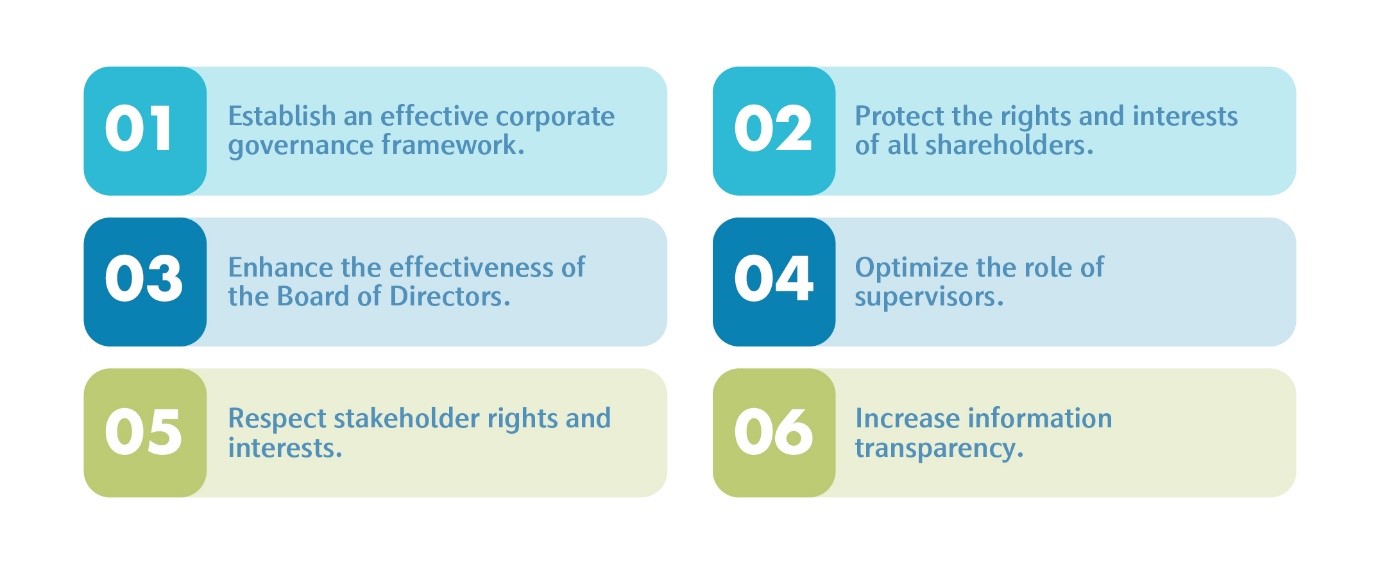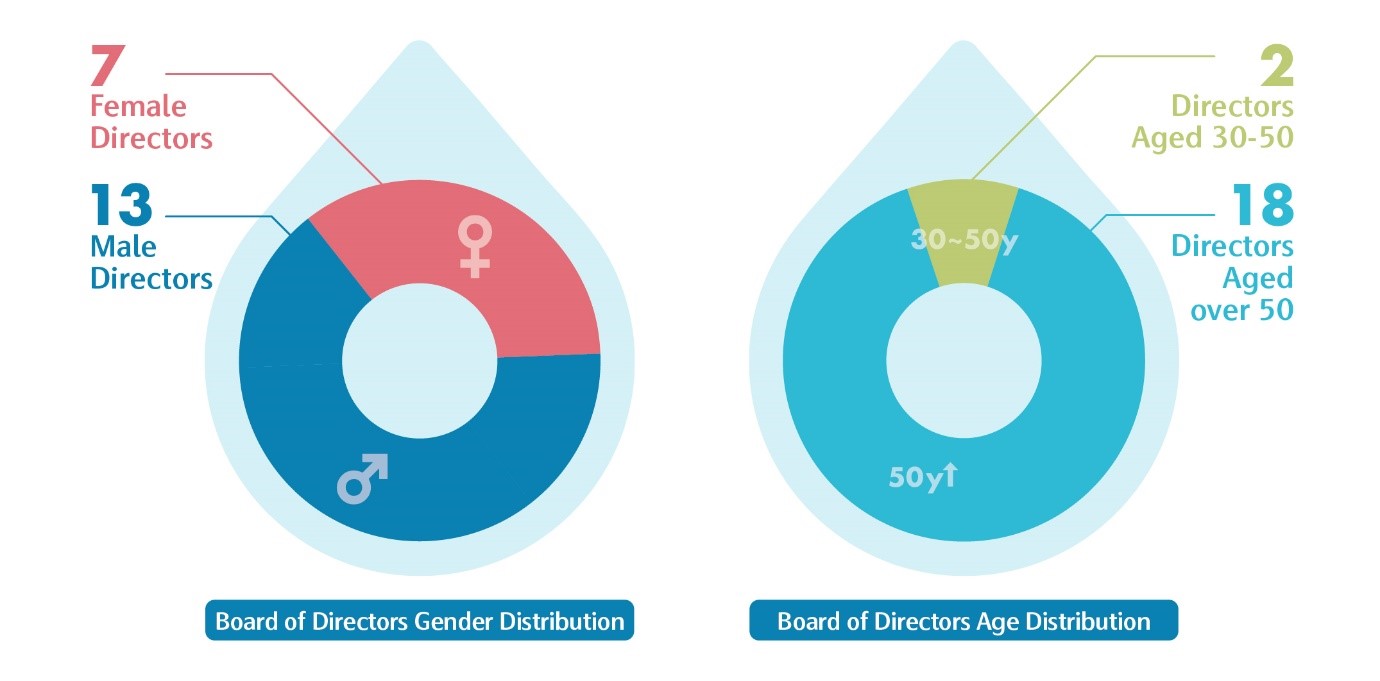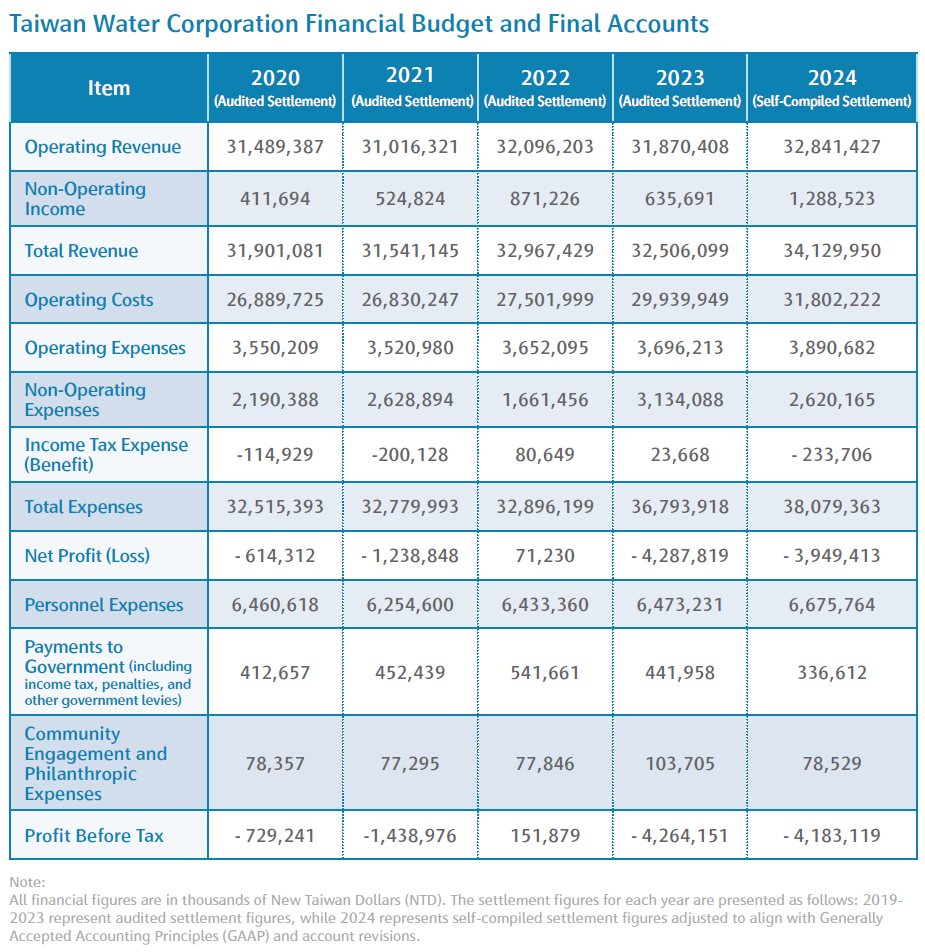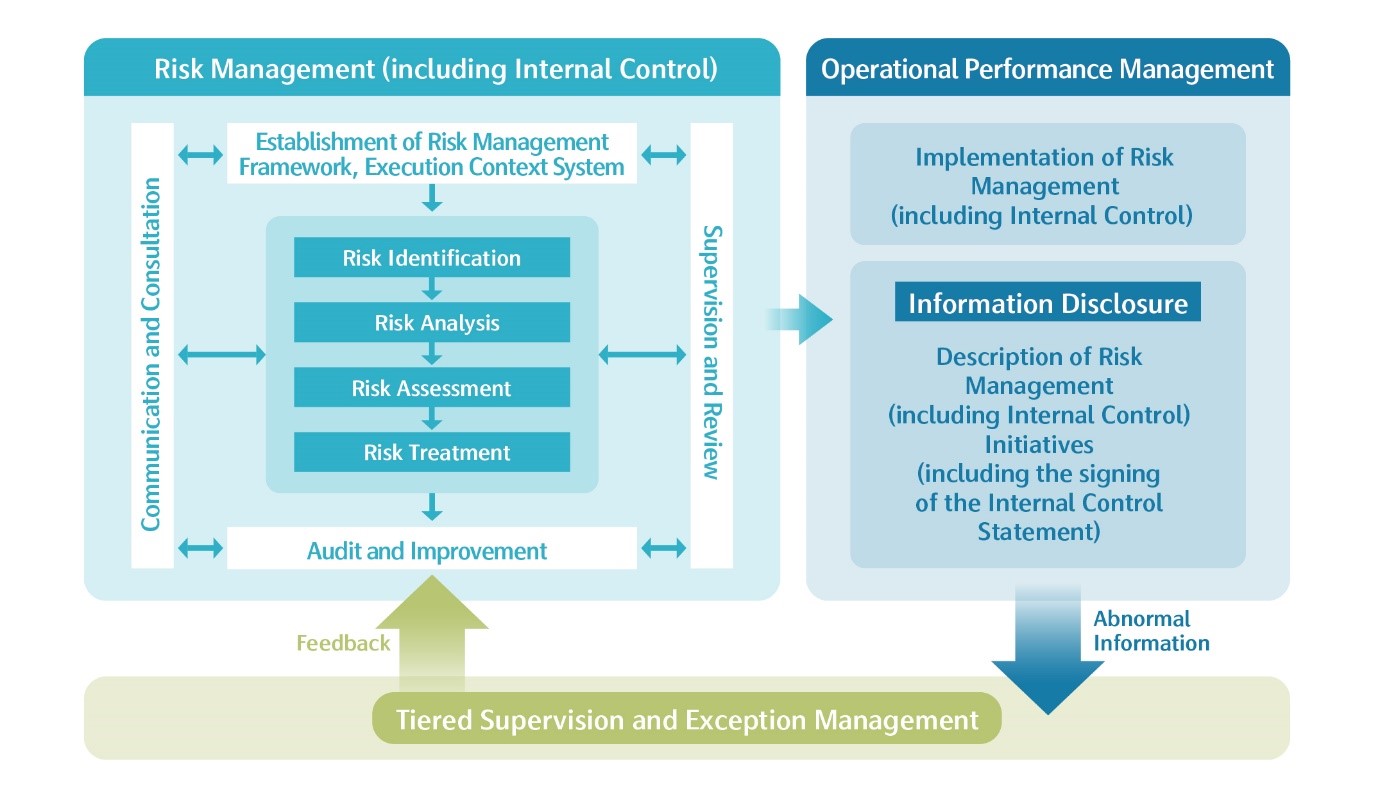Accountable Governance
Corporate Governance
To strengthen corporate governance structure and practices, we adhere to the Executive Yuan’s "Policy Guidelines and Action Plan for Strengthening Corporate Governance." Drawing from the "Corporate Governance Best Practice Principles for Listed and OTC Companies," TWC has developed its own "Corporate Governance Best Practice Principles." This document clearly outlines the company’s policy direction, core commitments, and specific strategies for advancing corporate governance. To achieve robust corporate governance, the best practice principles outline six key principles: The Six Principles of Corporate Governance of TWC
The Six Principles of Corporate Governance of TWC
Board Operations and Governance Mechanisms
TWC’s highest governing body, the Board of Directors, in accordance with Article 14 of the company’s Articles of Incorporation, consists of 15 directors and 5 supervisors. The nomination and selection process for board members follows the "Directions for the Appointment of Directors, Supervisors, and Other Important Positions in Public and Private Enterprises and Foundations Dispatched by the Ministry of Economic Affairs and its Subordinate Agencies and Institutions," the "Operational Essentials for Implementing Independent Director Systems in Enterprises Subordinate to the Ministry of Economic Affairs," Article 35 of the "State-Owned Enterprise Management Act," and the "Selection Procedures for Directors and Supervisors of Taiwan Water Corporation." These members are elected at the shareholders’ meeting.The Board of Directors is comprised of the Chairperson, labor directors, independent directors, academic experts, and representatives from local county and city governments. All members possess the necessary knowledge, experience, skills, and qualities to perform their duties. Their professional backgrounds and experiences encompass areas such as water utility management, environmental engineering, civil engineering, hydraulic engineering, business administration, international business, marketing management, international trade, economics, information and finance, technology, accounting, financial management, public affairs, industrial development, architectural planning, urban planning, social (women’s) welfare, gender equality, labor-management communication and coordination, and risk management. Notably, seven of these members are women (five directors and two supervisors), ensuring diverse perspectives in fulfilling the board’s operational and governance functions.
 Gender and Age Distribution of TWC Board of Directors
Gender and Age Distribution of TWC Board of Directors
Operational Performance
 TWC’s 2024Financial Budget and Final Accounts Item.png
TWC’s 2024Financial Budget and Final Accounts Item.png
Concrete Practices and Organizational Structure for Risk Management
 TWC Risk Management Framework
TWC Risk Management Framework
TWC Risk Management and Crisis Handling Operational Princilles Flowchart
 TWC Risk Management and Crisis Handling Operational Princilles Flowchart
TWC Risk Management and Crisis Handling Operational Princilles Flowchart


